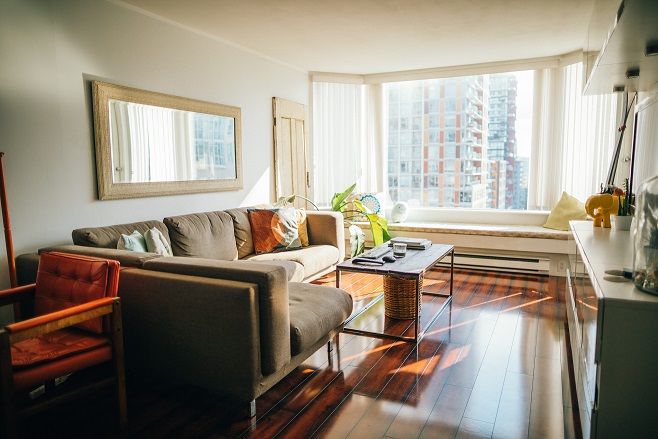
Buying a condo is a trade-off.
On the plus side, it’s the perfect way to downsize. To avoid doing outdoor chores yourself, to save energy, to live simply and frugally.
Buying a condo is also a great way to make the jump from apartment living to homeownership on a limited budget, or in uncertain times. It offers a sense of close community — without housemates. A condo property in a popular area is easy to sell, and can be a remarkable investment.
Condo properties do impose rules and restrictions. They must. Their role is to foster a consistent aesthetic, and facilitate the successful sharing of close quarters. But when a rule book is in the hands of a capricious or dysfunctional board of directors, the convenience of condo living can be overshadowed by unwanted drama.
Let’s talk about boards, and how they can impact an owner’s peace of mind — and even the value of their homes.
What to Expect: HOA Boards Are Big on Rules
First, the basics. It’s worthwhile to take time before you buy, and ask around. What’s the reputation of the condo property you’re buying into? Read the bylaws. Get a feel for what the board has done by perusing the Declaration of Covenants, Conditions and Restrictions (CC&Rs). This binder will lay out the various rules and limitations owners and renters must follow in properties. Do request your copy early in the buying process, before you put your deposit down.
Know your deed restrictions. Language in your deed could include restrictions on use, rentals, and alterations. And if you ever might possibly want to rent out your unit, or live with an additional person, be sure to talk with the management, and ask about limits. Some condo properties wish to qualify for FHA loans, for example — so absentee ownership is limited by federal law to a percentage over the property’s overall population.
What other broad-brush issues could arise?
Many suburban condo properties have small-town personalities. People know each other. It’s not unusual to find board members sending requests for proposals to contractors with whom they have personal connections. That’s legal as long as the contracts are competitive and the owners pay fair prices for the work — but sometimes the connectivity makes it hard to change protocols without social friction. As for your own professional pursuits, generally condo boards won’t stop them — unless your business involves people frequently coming and going, or otherwise goes against the grain of a residential area.
Now, the details. Look for provisions that answer these burning questions:
- How long can a car be parked in the same spot without moving? What about in visitors’ spots, or in times of snow removal?
- What about the visible elements of your unit? There might be rules on everything from the height of your grass to the hue of your curtains.
- Can you keep a grill on the patio?
- Who trims the shrubs and shovels the walkways approaching the units’ front doors — owners or maintenance staff?
- How long can holiday decorations stay in place?
Condos generally require board approval for everything from removing a dangerous tree to replacing an air conditioning system — possibly creating weeks of distress and discomfort. Boards can raise fees and impose special assessments with scant warning. They can decide where outdoor lighting can be placed, and prohibit bikes, scooters, or sidewalk chalk. They can fine owners for leaving their waste and recycling bins out too early or too late.
Dogs might be off-limits. There may be tight restrictions on having kids around, too.
You might find these restrictions beneficial, or you might find them unbearable. Not everyone is cut out for condo living, so learn as much as you can about the experience before jumping in.
Spot and Avoid HOA Nightmares
Why should a potential buyer look into social media and reviews? Why check out ratings for the on-site management company? What’s the point of asking the local real estate agent probing questions? Because some condo boards act, well, a little too much like the Harper Valley PTA. Need proof? Just do a search, when you get some free time, for “HOA nightmares.” There’s no shortage of stories on Reddit, ranging from mildly entertaining to mind-blowingly exasperating. Here are some samples of HOA board actions or inactions, as reported by owners and residents of condos:
- A resident gets a $500 fine for leaving a glass tumbler on the grill.
- An owner receives a warning for failure to pull weeds from around the exterior AC unit — although they’re neither visible nor reachable.
- A flight attendant gets a warning letter for showering after 11 p.m. after returning home late from the airport.
Think of all the shared walls, spaces, amenities and equipment a condominium has. The possibilities for making and adjusting rules on how to use and control them all can present endless opportunities for people to act as big fish in a small pond. Oh, yes — the ponds will have rules, too.
The Board Doesn’t Always Have the Last Word
Most condo properties have a good number of thoroughly reasonable rules. Contractors must report to the office. Alterations must go through an approval process. These processes should support the safety and property values of all owners. Basically, no upstairs resident wants anyone removing a weight-bearing wall on the ground floor; procedures need to be in place to prevent mishaps.
That said, some condo boards refuse to support beneficial, forward-looking technologies and changes, trends or requests. Consider the resident who is fined over rainwater collection, or a board’s refusal to allow solar energy, organic lawn care, composting or native gardening. Don’t assume you’ll be able to switch your unit’s gas-powered HVAC system, furnace and appliances to that electric hybrid heat pump you have in mind.
If certain technology or green elements are important to you, check for covenant agreements covering whether and where owners can install new equipment — whether it’s a solar panel or a satellite dish — and look for lienable fines if the rules are not followed.
Keep in mind that state and federal laws may be in place to back you (or not) if you insist on making changes. For example:
- California’s Solar Rights Act directs condo associations to allow their residents to install solar panels.
- State laws also govern rainwater collection.
- Under federal law, condo properties must allow residents to install signal reception devices where they get proper reception; see the Over the Air Reception Devices Rule within the Telecommunications Act of 1996.
The board can make rules, but it won’t always have the last word. So, before paying a questionable fine, check state and federal law.
Five Ways to Counter an HOA Board’s Decision
Ticked off at the HOA board for its action or failure to act? Here’s a checklist of five ways to approach the matter.
- Wait out the situation. Eventually, new board members will be in place. Support the most responsible nominees. Things can change.
- Get the issue on the agenda. To press the point faster, be heard at the next open meeting. Address the board and other residents. If anyone shares your concerns, the board’s stance might change.
- Write letters to the board and management. Avoid bullying or overstating your case. Try to inspire, persuade or cajole without becoming a complainer. Yes, it’s a fine line.
- Overturn the action by a vote. Attempt to override the action by using the homeowners’ vote provision in the association’s documents. To be sure the vote is handled with fair and proper procedures, check your state’s Homeowners’ Association Act. It will have rules governing the vote procedure.
- Go to court. In serious matters, a lawsuit might be inevitable. Note that this is a last resort, as it can drag down the reputation of a property and take your condo value down with it. Lawsuits on properties might even stop lenders from approving new mortgages at a property.
If You Can’t Beat ‘Em, Join ‘Em?
Many self-help columns advise condo residents to run for the board to force change. This isn’t as easy as it might sound. There might be provisions on new board members needing to be greenlighted by incumbents; and, in any case, volunteering for a troublesome HOA board is a tough commitment to take on. You’ll have fiduciary duties to the community, which comes with potential liability.
Can you be sued? Sure. Plaintiffs can sue individual board members along with associations, and they might do it, if only to create a sense of urgency to settle. But individual board members are personally liable only if they acted in bad faith or outside the board’s authority.
Consider an example for our times. A homeowner files a claim against the HOA and its board members asserting that a viral outbreak was caused by the HOA’s failure to properly carry out state and county health-related rules. Depending on the facts of the situation, the HOA might be liable for damages, but an individual board member who didn’t act maliciously is unlikely to be held liable.
Moreover, your association’s Directors and Officers (D&O) insurance, if purchased, should defray any personal legal costs. It’s a good idea to get a copy of your HOA’s insurance policies from the management office before you make a decision to run. Check the association’s governing documents as well; they might provide for board member indemnification for costs of legal challenges to a director’s official actions.
If your property is run by a deeply dysfunctional board, you might be ready to consider looking around at other properties, or at co-ops where the residents share collaborative responsibilities and expectations. If so, there are a few things to keep in mind about transferring your title.
Condo Deed Conveyance: A Community Affair

Through the standard real estate sale and escrow process, a condo association receives notice of the transfer of a unit. The condo transfer is represented by a deed with the new owner’s name on the title.
Outstanding dues and debts will be charged to the owner of record. These may include the costs of maintaining common elements, the water bills and waste management, the association’s insurance, and contributions to the property’s reserve fund. Associations must recover administrative costs when titles change hands and the new owner comes on board.
For these reasons, and in case of any liens or legal actions, tell the association if you transfer a deed through foreclosure, by divorce or by quitclaim, or by placing the condo into a trust. Condo owners who convey their titles should return all keys, passes and permits, averting responsibility for security breaches.
In short, owners of condos are part of a community-owned property as well as their unique units. It’s important to be comfortable with this dual role.
And this brings us back to our original observation. Buying a condo is a trade-off. Finding a well-managed condo association is a wonderful way to join a community and to build wealth through real estate. Ask the right questions, and you’ll find a good one.
Photo credits: Builee Com and Wes Hicks, via Unsplash.
